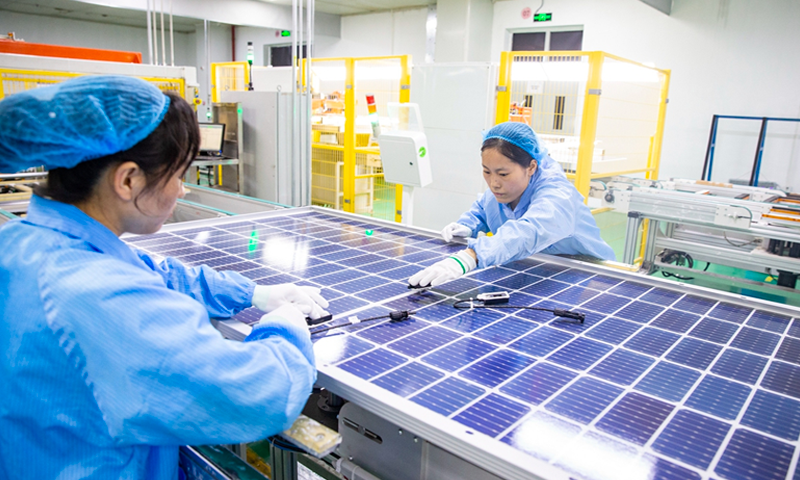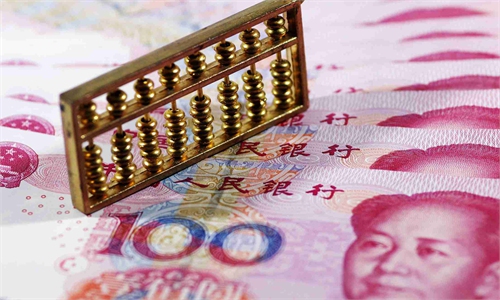India reportedly investigates Chinese solar companies for tax evasion; move to backfire: experts

Workers make solar photovoltaic modules at a factory in Hai'an, East China's Jiangsu Province on June 19, 2023. Photo: cnsphoto
Indian tax authorities have reportedly launched an investigation into 40 leading Chinese solar companies in the name of alleged tax evasion, according to media reports.
Chinese experts see the move as the latest trade restriction and protectionist measure taken by India to squeeze China out of its supply chain, amid India's hardened crackdown on Chinese companies, which they said would jeopardize India's own industry.
The investigation has been going on for a month and it requires domestic photovoltaic (PV) enterprises to assist in the investigation and receive inquiries. If the charges are confirmed, the companies could face fines, Chinese media outlet Yicai.com reported, citing insiders from Chinese PV enterprises.
India relies heavily on imports of China's PV cell modules.
This investigation is aimed at creating barriers for Chinese companies in order to protect India's local industry, Lin Boqiang, director of the China Center for Energy Economics Research at Xiamen University, told the Global Times on Thursday.
Since 2018 India has taken many trade restriction measures to support its local industries. In July 2018, India issued a ruling to impose duties on imported solar products from China and Malaysia for a period of two years.
In 2021, India announced an anti-dumping investigation into solar PV products originating from or imported from China, Thailand, and Vietnam. The investigation ended in November, 2022.
Such measures reflect trade protectionism from India and would impede India's progress toward green development and have a negative impact on its economy, Lin said, noting that one of the consequences would be the rising installation costs of PV systems.
China has a competitive advantage in the solar industry due to its complete and cost-effective supply chain, which is hard to replicate elsewhere, in terms of manufacturing ability and cost competitiveness, Lin said.
Chinese experts said that this latest move by India would have little impact on China's PV companies as India is not a significant export market for China.
According to data from the China Photovoltaic Industry Association, the proportion of China's PV module exports to India was just 6.4 percent of its total exports in 2022.
In addition to the PV sector, India is intensifying its efforts to decouple from China, targeting Chinese smartphones and computers as India has been attempting to build itself into a global manufacturing hub by implementing protectionist trade policies to squeeze out Chinese investments and companies, Liu Zongyi, secretary-general of the Research Center for China-South Asia Cooperation at the Shanghai Institutes for International Studies, told the Global Times on Thursday.
Yet the growing trade between China and India, despite India's various crackdowns to squeeze Chinese investments and companies, reflects the economic dependency between the two countries, Liu said.
In 2022, China-India trade hit a new high, with cross-border trade reaching $135.98 billion, surpassing $100 billion for a second consecutive year.

